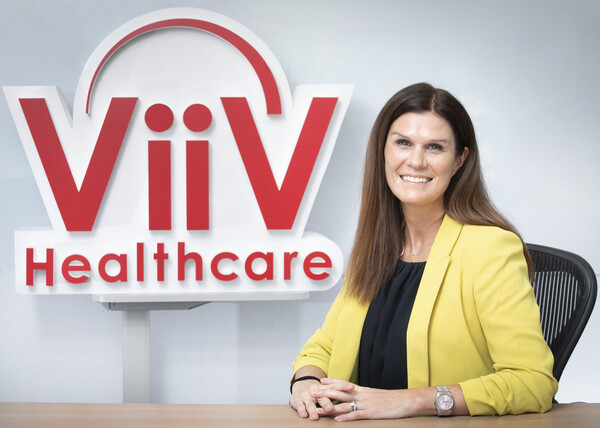HIV, once seen as an inevitable death sentence, has transformed in recent years from a terrifying diagnosis to a chronic, manageable condition. Advances in antiretroviral therapy have radically extended life expectancy for those diagnosed.
Take, for example, a 20-year-old diagnosed in 2008 who begins treatment today: they could live to around 78, just two years shy of the average life expectancy for a male in the U.S. in 2021. And the "U=U" campaign—undetectable = untransmittable—has redefined the disease’s narrative, confirming that an undetectable viral load eliminates the risk of transmission.
Yet medical breakthroughs alone cannot erase the shadows of stigma that continue to weigh on the lives of those living with HIV. The social and emotional toll remains profound, shaping interactions with healthcare providers and deterring many from seeking care.
Lauren Carey, vice president and head of the international division at ViiV Healthcare, a London-based pharmaceutical company specializing exclusively in HIV treatment, understands this intimately. "Globally, reducing stigma is as crucial as advancing treatments—only when people feel empowered to seek care will we truly end this epidemic," Carey said in an interview with Korea Biomedical Review during a recent visit to Seoul.

"The goal,” Carey, who has spent much of her career overseeing global HIV efforts, said, “is to make HIV a smaller part of their lives by reducing the reliance on daily pills. We need to develop treatments that make patients feel less like they're living with a chronic condition."
Founded in 2009 as a joint venture between GSK and Pfizer, ViiV Healthcare has become a leader in long-acting HIV treatments. Its bi-monthly injection regimen, based on integrase strand transfer inhibitors, is already reducing the need for daily medication. The company is now working on extending dosing intervals to four or six months, aiming to alleviate the psychological and logistical burdens that accompany frequent treatment.
"Being dedicated to one disease allows us to rally around a singular mission," Carey noted. "And that mission drives our work across countries, helping us focus on ending the epidemic by 2030."
Addressing stigma, Carey emphasized, is a global undertaking. “Educating and informing communities about HIV is essential,” she said. “It encourages people to seek care, which is the first step toward improving health outcomes.”
At the International AIDS Conference in Munich, the Joint United Nations Programme on HIV/AIDS (UNAIDS) revealed that 40 million people worldwide are still living with the virus. While antiretroviral therapy has improved lives, barriers to diagnosis and care remain steep, often compounded by cultural and systemic factors.
"In Asia, for instance, societal norms and healthcare infrastructure significantly influence whether individuals seek and adhere to treatment," Carey said.
ViiV’s Positive Action program addresses these disparities by collaborating with grassroots organizations. In Korea, it supports educational campaigns aimed at fostering understanding and reducing stigma, while globally, the company has spearheaded initiatives to improve access to lifesaving treatments.
Through the Medicines Patent Pool program, ViiV has granted voluntary licenses for key drugs—such as pediatric formulations of dolutegravir—to generic manufacturers, ensuring affordability in low-income regions. In sub-Saharan Africa, licenses for long-acting prevention drugs are reaching vulnerable populations.
As efforts to combat HIV continue, the conversation has evolved beyond the original 90-90-90 targets—diagnosing 90 percent of those living with the virus, treating 90 percent of those diagnosed, and achieving viral suppression in 90 percent of those treated. Now, a “fourth 90” is in focus: improving the quality of life for people living with HIV. For many, this means moving beyond the daily reminder of their condition.
Insights from ViiV’s Positive Perspectives research underscore this. Surveying over 2,300 people across 25 countries, including 50 participants from Korea, the study revealed a deep yearning among patients for treatments that don’t dominate their daily lives. This insight has been the foundation of ViiV’s innovation—shifting focus to long-acting regimens that require only six doses per year.
Despite the progress, Carey is clear-eyed about the road ahead. A cure is not yet within reach. “We’re not speculating on cures,” she said. “At this stage, the most ViiV can do is to increase the accessibility of effective treatments to as many patients as possible.”
Initiatives like the Gender Equality Fund and the HER Voice Fund, developed in collaboration with the youth HIV organization Y+ Global, extend ViiV’s impact further, addressing broader health inequities and empowering women and adolescents in Africa to shape decisions affecting their health.
Related articles
- GSK Korea unveils long-acting HIV injection at infectious disease meeting
- Regulator halts import of GSK’s asthma drug and imposes a fine
- GSK, GC, SK, Yuhan acquitted in NIP vaccine bid-rigging case
- GSK launches 1st meningococcal B vaccine Bexsero in Korea
- GSK Korea announces discontinuation of DTaP-IPV vaccine supply
- Viatris, Pfizer, Vantive cut jobs in Korea
- [Interview] HIV nears a cure -- but stigma still holds us back

